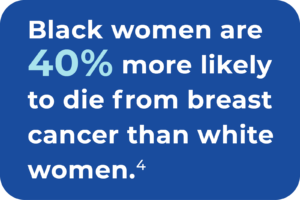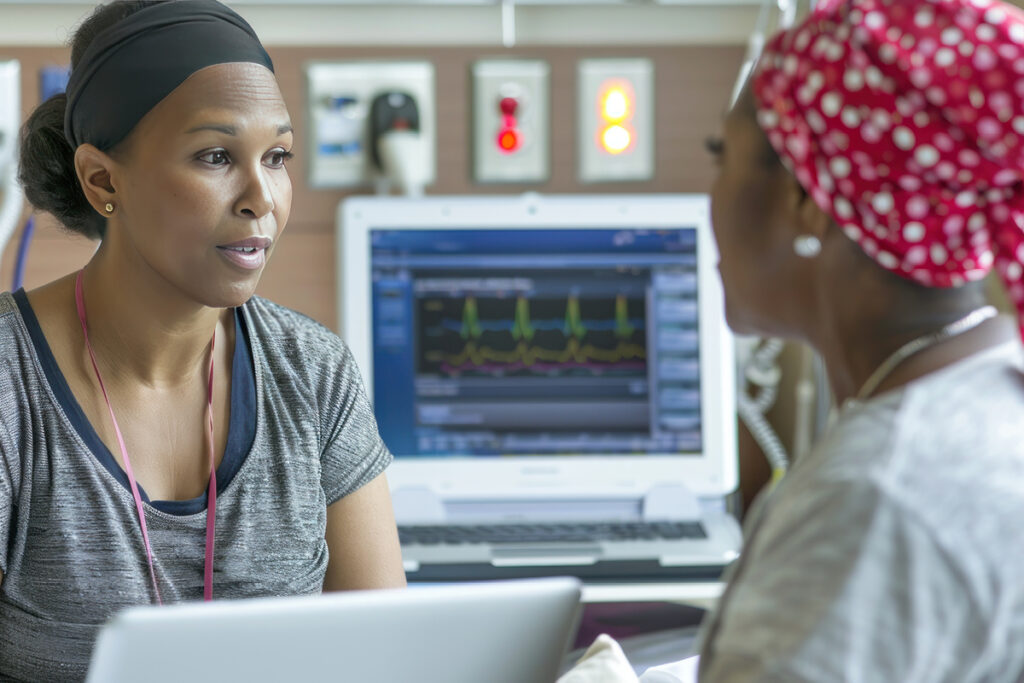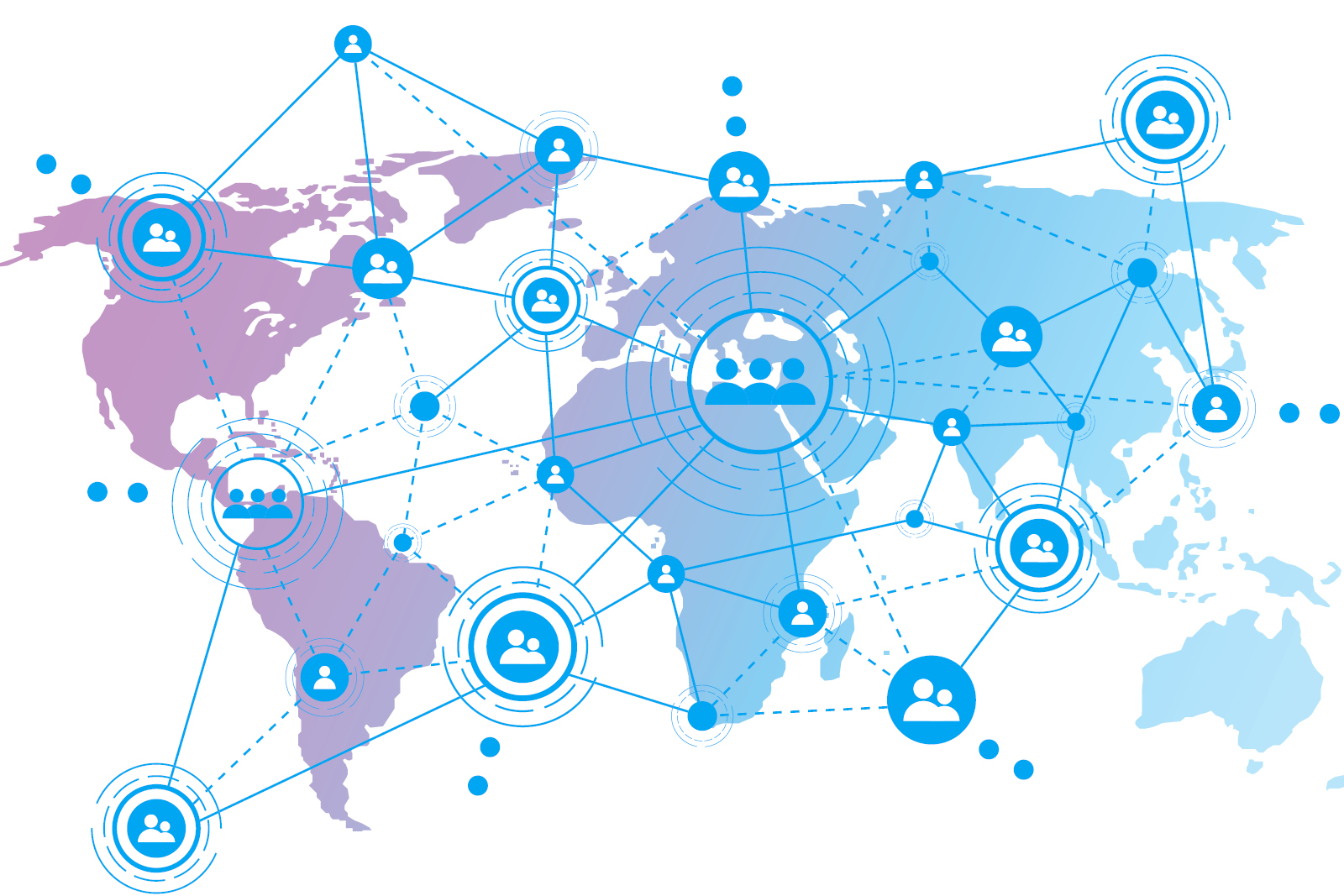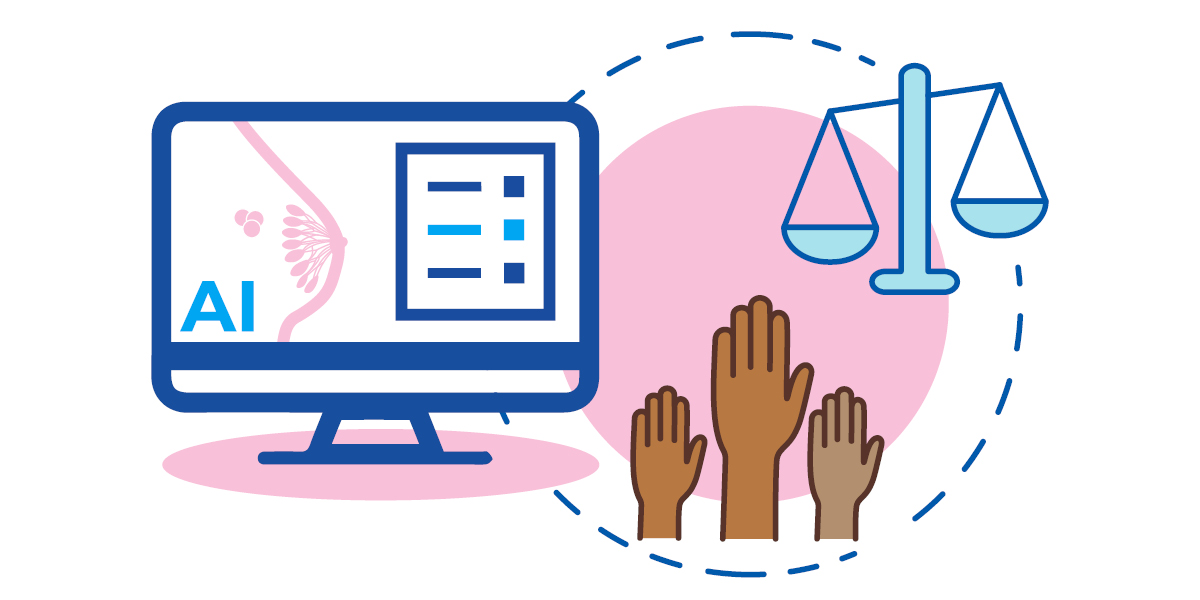As we approach Juneteenth, a day marking the emancipation of enslaved people in the U.S., it’s a time to reflect on the progress we’ve made towards equality and justice. However, it’s also a time to acknowledge the persistent disparities that continue to affect Black communities, particularly in healthcare. One such disparity lies in the realm of breast health, where minoritized groups face disproportionately higher risks of certain aggressive breast cancers and poorer outcomes compared to white women.1-3
Healthcare Inequity: Understanding the Disparities
 The statistics are sobering: Black women are not only more likely to be diagnosed with breast cancer at younger ages and later stages, but also have a higher mortality rate. According to recent data from the American Cancer Society, Black women are 40% more likely to die from breast cancer than white women, and this gap widens among younger age groups.4 Moreover, the Centers for Disease Control and Prevention (CDC) reports that Black women have an 81% higher rate of triple-negative breast cancer, an aggressive subtype that can be more challenging to detect and treat through traditional screening methods.5 Particularly since Black women are also given fewer digital breast tomosynthesis (DBT), or 3D mammogram, screenings than other racial and ethnic groups,6-7 even though DBT is better able to detect aggressive cancers, and even more so when complemented with mammographic artificial intelligence (AI) solutions.
The statistics are sobering: Black women are not only more likely to be diagnosed with breast cancer at younger ages and later stages, but also have a higher mortality rate. According to recent data from the American Cancer Society, Black women are 40% more likely to die from breast cancer than white women, and this gap widens among younger age groups.4 Moreover, the Centers for Disease Control and Prevention (CDC) reports that Black women have an 81% higher rate of triple-negative breast cancer, an aggressive subtype that can be more challenging to detect and treat through traditional screening methods.5 Particularly since Black women are also given fewer digital breast tomosynthesis (DBT), or 3D mammogram, screenings than other racial and ethnic groups,6-7 even though DBT is better able to detect aggressive cancers, and even more so when complemented with mammographic artificial intelligence (AI) solutions.
These disparities are not merely statistical outliers but indicative of systemic issues within our healthcare system. Factors such as limited access to quality care, socioeconomic barriers, and implicit bias in healthcare delivery contribute to these stark inequities.
Opportunity for Change: Improve Access to Care through Patient Support and Health Provider Education
Black women face barriers to receiving the care they need due to lack of representation in the health care system, cultural responsiveness, and below standard care. The use of patient navigators, especially those from the Black community, along with enhanced physician education regarding health disparities, could significantly improve breast cancer outcomes for Black women.8-9

Patient navigators serve as critical liaisons, providing culturally sensitive support, facilitating communication between patients and healthcare providers, and helping to navigate the complex healthcare system. They ensure that Black women receive timely screenings, diagnoses, and treatments, which can mitigate delays and improve survival rates. Concurrently, educating physicians about the unique challenges faced by Black women, including the impact of systemic racism and implicit biases, equips healthcare providers with the knowledge and sensitivity necessary to deliver equitable care. And advocating for the inclusion of mammographic AI assessments within breast cancer screenings adds an unbiased layer of informative data as evidence by studies reviewing AI risk results between white and Black women,10 as AI algorithms focus on image-based learned results, and isn’t biased by the color of the patient’s skin or where she lives.
This dual approach addresses both the interpersonal and systemic levels of healthcare, fostering an environment where Black women feel heard, respected, and adequately supported throughout their breast cancer journey.
Where Do We Go Next: Harnessing AI for Health Equity
AI is a proven tool in revolutionizing healthcare, offering the potential to address disparities and improve outcomes. However, it’s imperative that AI development prioritizes inclusivity and diversity. By ensuring that training datasets represent a wide range of racial, ethnic, and geographic backgrounds, AI algorithms can deliver more accurate and equitable results.
iCAD’s ProFound Breast Health Solution is committed to ensuring to diversity within AI training datasets ensures that their algorithms are not only generalizable across diverse populations but also clinically effective for all women, regardless of race or ethnicity. Through data transparency, large diverse AI training datasets, and a relentless focus on continuous improvements, we are on a path toward a world where cancer can’t hide, for all patient populations and communities.
Race, Ethnicity, or Geography Shouldn’t Limit Care: The Importance of Inclusivity
 AI is revolutionizing breast cancer screening by leveling the playing field in access to advanced diagnostic tools. The effectiveness of 3D mammography significantly increases when interpreted by specialized breast radiologists, and adding AI further enhances this process by providing an additional layer of precision and consistency. By integrating AI with 3D mammography, the combined expertise of breast radiologists and AI algorithms can significantly improve early detection rates and reduce breast cancer disparities among Black women.
AI is revolutionizing breast cancer screening by leveling the playing field in access to advanced diagnostic tools. The effectiveness of 3D mammography significantly increases when interpreted by specialized breast radiologists, and adding AI further enhances this process by providing an additional layer of precision and consistency. By integrating AI with 3D mammography, the combined expertise of breast radiologists and AI algorithms can significantly improve early detection rates and reduce breast cancer disparities among Black women.
With the availability of cloud-based AI solutions, geographical barriers are minimized; a mammogram can be uploaded and reviewed by a specialized breast radiologist from anywhere, complemented by AI analysis. This ensures that high-quality breast cancer screening and expert interpretations are accessible to all women, regardless of their location, thereby promoting equitable healthcare access and outcomes. Inclusivity in AI development and access is critical, ensuring that no community is left behind.
Conclusion: Enabling a Future of Equity
As we commemorate Juneteenth and reflect on a journey toward equality by achieving equity, let us recommit ourselves to addressing healthcare disparities, particularly in breast health. By investing in education, expanding access to care, and harnessing the power of AI with inclusivity at its core, we can create a future where timely diagnosis and effective treatment are not privileges but universal rights. Together, let’s strive towards a world where everyone, regardless of race or background, has the opportunity to live a healthy and fulfilling life.
Artificial intelligence is changing breast health care. The Difference is ProFound.
References
1. https://www.bcrf.org/blog/black-women-and-breast-cancer-why-disparities-persist-and-how-end-them/
2. https://www.komen.org/breast-cancer/risk-factor/race-ethnicity/
3. https://www.breastcancer.org/risk/risk-factors/race-ethnicity
4. https://www.cancer.org/research/acs-research-news/breast-cancer-death-rates-are-highest-for-black-women-again.html
5. https://www.ncbi.nlm.nih.gov/pmc/articles/PMC6316530/
6. https://www.jacr.org/article/S1546-1440(21)00006-5/fulltext
7. https://www.itnonline.com/article/black-women-are-receiving-inferior-breast-screening
8. https://ascopubs.org/doi/10.1200/EDBK_319929
9. https://www.komen.org/wp-content/uploads/Landscape-Analysis-Exec-Summary.pdf
10. https://www.mdpi.com/2072-6694/14/19/4803
